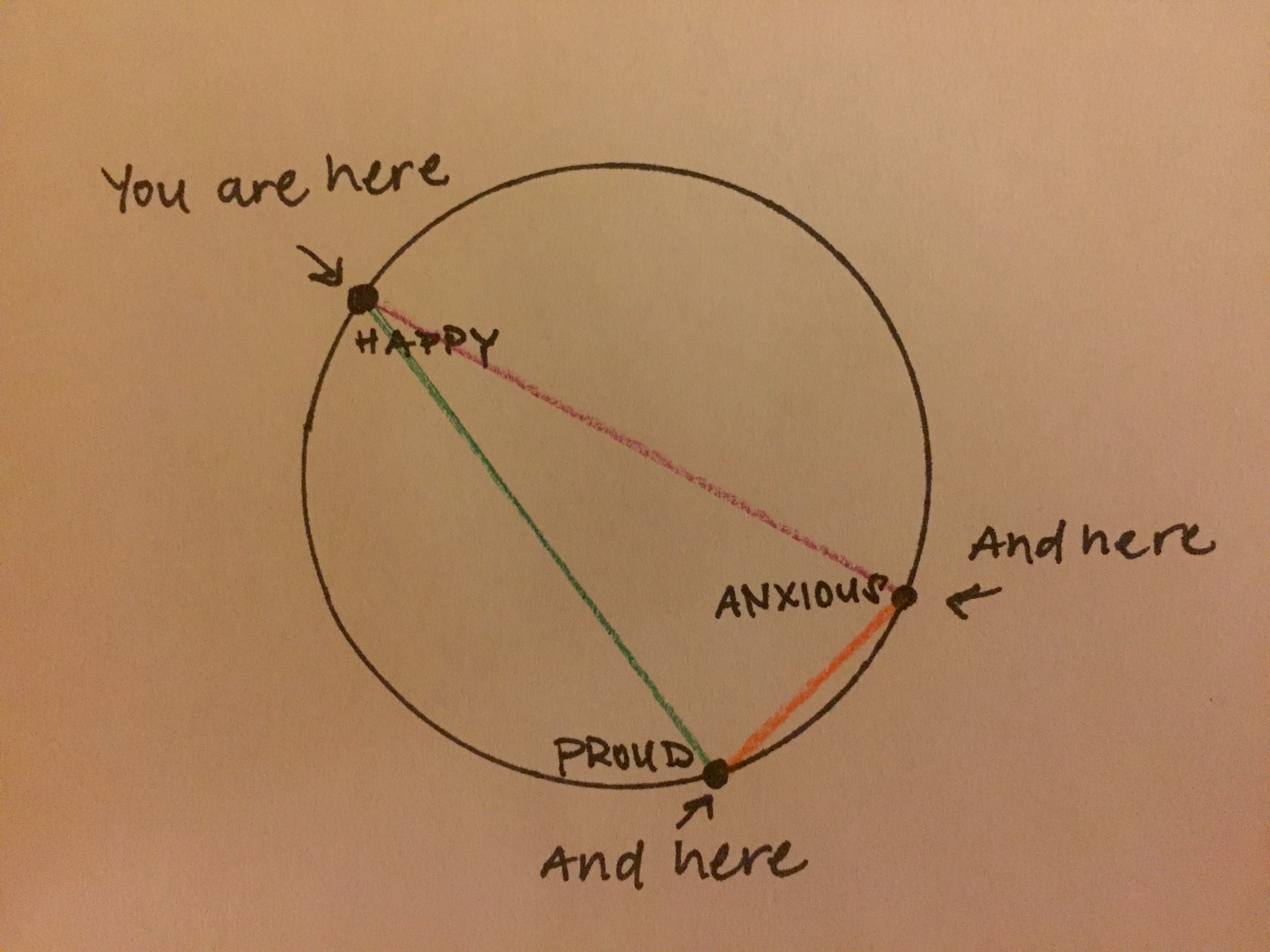I became a lot happier when I stopped caring so much if I was happy.
There's something about emotions that makes them very easy to sort into two piles: good and bad. We have emotions which we prefer, and as adults with influence over our circumstances, we can become quite consumed with the pursuit of those “good” emotions. But there is something deceiving about such a pursuit, and if we only ever feel happy, we're bound to miss out.
Wouldn't it be alarming if we were so happy we couldn't feel sad – not even in the face of something truly heartbreaking? And wouldn't it be stifling to live a life so happy that we could never feel angry in the face of injustice or affront? Such a happiness is not happiness at all. In fact, happiness in the absence of the other emotions soon disappears, no matter how closely we guard it. Happiness means more when contrasted with an experience of anger or sadness or one of those other “bad” feelings.
Interestingly, happiness and other seemingly “bad” emotions are not mutually exclusive. I think we often try to root out those emotions we think are getting in the way of our happy. Sometimes, it's that effort that is getting in the way – not the feelings themselves!
It takes practice, and sometimes a little help, but noticing and accepting the mixed set of emotions that exist inside of us frees us up. It allows us to experience the world complexly. Happy and anxious and many other emotions can coexist.
Diagram by author.
It also creates space inside of us to recognize what is important. Emotions give us information. They are beckoning us to say “no” to something, or to stand up for someone, or to ask for help, or to grieve. And however unpleasant these “bad” emotional signals may be, if they help me to do such important tasks, then I'd say, they are good.
Allison (Allie) Ramsey is a Marriage and Family Therapist Intern, IMF #94391, working under the professional supervision of Michelle Harwell, PsyD, MFT 50732. Allie works with individuals on a broad range of issues, including anxiety, depression, relational challenges, faith integration, divorce, and aging.






